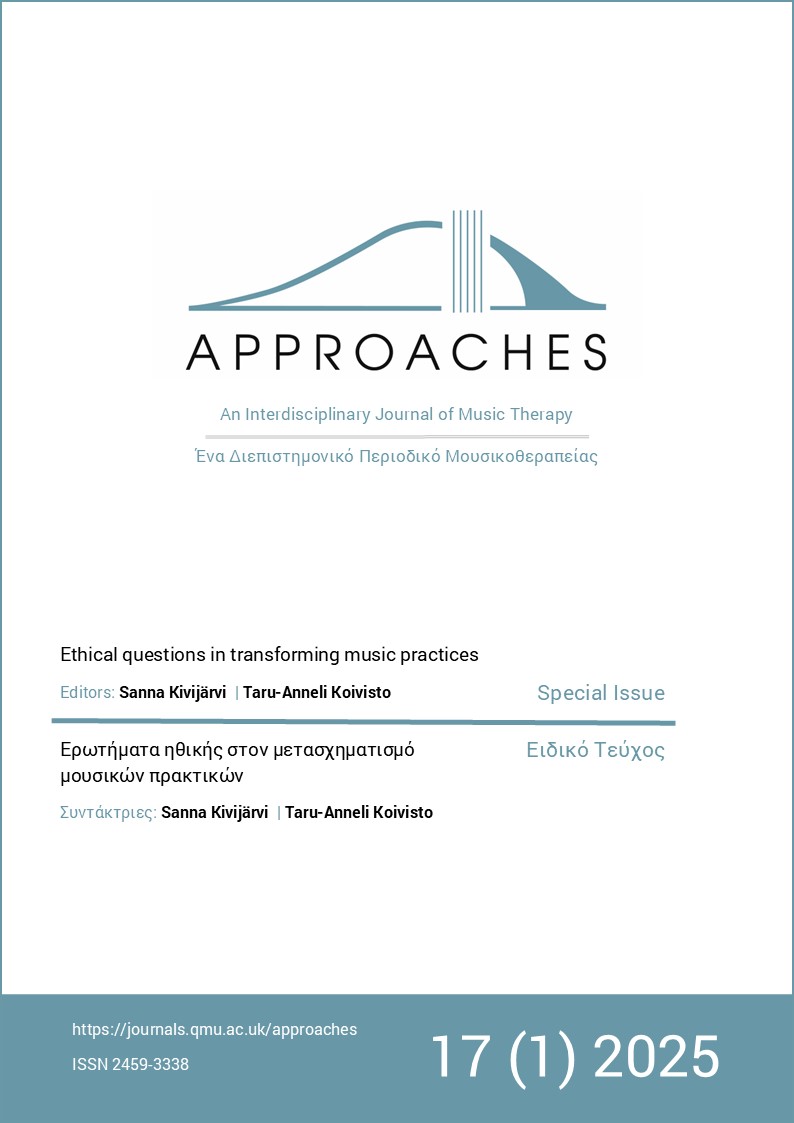How much glass can I break before they fire me? Negotiating ethically-constructive education in a fractured political landscape
DOI:
https://doi.org/10.56883/aijmt.2025.613Keywords:
identity, collective identities, ethically-constructive education, morality, freedom, disruption, music, artAbstract
Amid the myriad of political disagreements that arise among collective identity groups vying for space within the educational curriculum, we offer in this article a theoretical framework through which we argue that schools are uniquely positioned to serve as spaces in which students can negotiate the ethical and moral selves of their choosing. Drawing upon the work from educational philosopher Maxine Greene (1988) and ethics philosopher Kwame Anthony Appiah (2005), we suggest that 1) the development or ‘becoming’ of one’s identity is an ethical endeavour, 2) negotiating identity space in both education and society at large is a moral endeavour, 3) acting upon both the ethical and moral dimensions of identity construction requires that individuals hold a form of socially-contextualised personal freedom, and 4) that practices and policies in education which privilege or marginalise individuals with particular identities ought to be questioned and potentially disrupted. Throughout our articulation of this central argument, we weave in contextualised examples from scholarly literature, recent current events in U.S. news and politics, and autoethnographic reflections. To tailor these ideas more specifically for the music education-focused reader, we draw upon a variety of sources from international music education journals that emphasise settings in which students are prompted to explore and construct aspects of their identities through music.
Downloads
Published
Issue
Section
License
Copyright (c) 2025 Mya Scarlato, Katie Kelly

This work is licensed under a Creative Commons Attribution-NonCommercial-NoDerivatives 4.0 International License.




